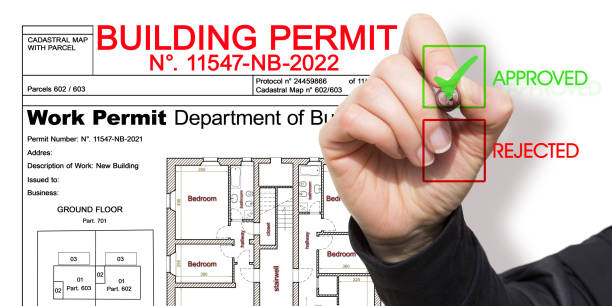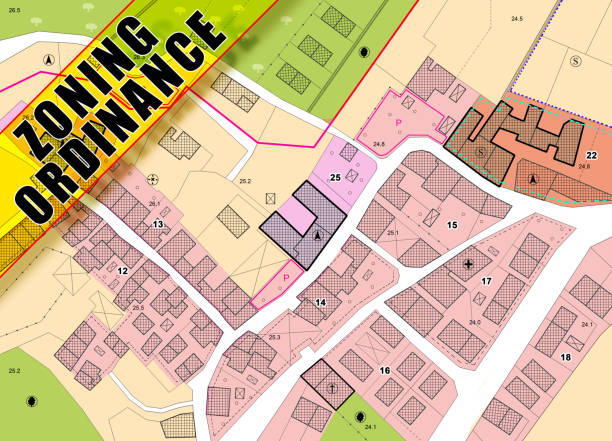Why Los Angeles Housing Feels “Broken”—and How JDJ Consulting Group Helps Fix It
For years, Angelenos have shared the same concern: housing feels impossible to find and even harder to afford. Rising rents, stalled construction, and outdated zoning leave residents frustrated. Meanwhile, other cities are taking bold steps to add more housing and ease affordability pressures.
Table of Contents
ToggleThe reality is not simply bad luck. Los Angeles has been shaped by decades of planning decisions, political battles, and resistance to change. These choices created today’s complex landscape.
At JDJ Consulting Group, we examine these patterns every day. By understanding the past and analyzing what works elsewhere, we help clients move projects forward in a system that often feels stuck.
Why Many See the System as Broken
A Patchwork of Restrictions
Los Angeles zoning maps reveal the problem. Roughly 70% of residential land is locked into single-family use. That means most lots can hold only one home, even in areas where population density is high.
This setup limits supply. With millions of residents competing for limited housing, prices climb faster than wages. For many, the system feels designed to exclude new growth.
The Comparison with Other Cities
Cities like Chicago have pursued reforms that allow taller buildings and multi-family housing near transit. These adjustments help align development with population needs. In Los Angeles, similar changes have been slower, leaving people to question why the city remains so restrictive.

How Los Angeles Got Stuck
Downzoning and Political Decisions
In the 1980s, city leaders introduced downzoning. They lowered building heights and cut density in many neighborhoods. The goal was to preserve character and calm community fears. But the outcome was a steady reduction in available land for apartments.
Measure U further restricted growth by capping project sizes. These moves won support from homeowners but closed the door on large-scale housing development.
Local Control and Council Politics
Each council district has strong influence over local zoning. Councilmembers often block projects or demand reductions in height or unit count. While intended to protect neighborhoods, these interventions prevent a coordinated, citywide approach to housing.
The result is a fragmented system. Some neighborhoods stay frozen in time, while others struggle with piecemeal development.
Long-Term Affordability Fallout
These policies shaped today’s affordability crisis. Building affordable housing in Los Angeles now costs around $600,000 per unit, once land and permits are factored in.
At the same time, the region has lost more affordable housing than it has built. Since the 1990s, Los Angeles has lost over 110,000 affordable homes and replaced only a fraction. That gap is one reason why so many residents struggle to keep up with rent.
The Broader Consequences
Displacement and Gentrification
When supply stays limited, pressure builds in working-class neighborhoods. Families face rising rents and, in some cases, must relocate. Wealthier buyers often step in, changing the character of these areas and fueling gentrification.
Renters Under Stress
About 57% of renters in Los Angeles spend more than 30% of their income on housing. That leaves little for healthcare, savings, or education. These trade-offs ripple across families and weaken long-term stability.
Economic Costs to the City
The housing shortage also damages the economy. When construction slows, jobs disappear. Developers cancel projects, neighborhoods miss growth opportunities, and city tax revenue falls. Over time, this erodes public services and deepens inequality.
Lessons from Other Cities
Upzoning Success Stories
Chicago has added density near train stations. By allowing taller buildings in targeted zones, the city increased supply without overwhelming established neighborhoods. This approach balanced growth with transit access.
Innovations in Affordability
Other cities have experimented with creative tools. Some use inclusionary zoning, requiring developers to set aside units for affordable housing in exchange for density bonuses. Others allow micro-units or co-living spaces to provide more flexible options.
The Role of Advocacy
Housing reform is not only about policy—it’s also about persistence. Advocacy groups push cities to modernize zoning and embrace new solutions. Their efforts highlight that change is possible when communities and leaders work together.
How JDJ Consulting Group Helps Clients Navigate the System
Expertise in Zoning and Land Use
At JDJ Consulting Group, we know how confusing zoning rules can be. Our team studies the fine print of land use regulations and finds practical ways to move projects forward. Whether a client faces height limits, density restrictions, or neighborhood pushback, we help identify the best strategy.
Entitlements and Permitting Solutions
Securing entitlements and permits is often the biggest barrier to development. Delays can cost months and sometimes years. JDJ specializes in streamlining this process. We coordinate with city officials, track requirements, and prepare complete applications to prevent costly setbacks.
Data-Driven Due Diligence
Every project starts with risk assessment. We provide due diligence that highlights potential zoning conflicts, environmental challenges, or community concerns. With this information, clients avoid surprises and plan realistically.
How JDJ adds value for developers and investors:
Clear zoning analysis before land acquisition
Tailored entitlement strategies for complex projects
Strong relationships with city staff and planning officials
Risk reduction through detailed due diligence reports
Our approach is practical and grounded in results. Instead of hitting roadblocks, our clients gain clarity and confidence.
A Vision for a Better Los Angeles Housing Future
Unlocking Land for Housing
Los Angeles has the land to support growth, but much of it is underused. With smart reforms, single-family lots can evolve into small apartment buildings or duplexes. This doesn’t erase neighborhood character—it adds diversity and balance.
Building Affordability into Growth
Future housing must include options for all income levels. Density bonuses, inclusionary zoning, and public-private partnerships can make affordability possible without halting development. JDJ helps clients tap into these tools to align with policy while delivering viable projects.
Infrastructure and Community Balance
Adding housing is not only about buildings. Transit, parks, and services must expand too. A coordinated approach ensures growth benefits both new residents and existing communities. Cities like Los Angeles must plan holistically, not in silos.
A better housing future includes:
More choices for renters and buyers
Stronger protections against displacement
Growth aligned with transit and infrastructure
Streamlined permitting that saves time and money
At JDJ, we believe Los Angeles can move past the “broken” label. With the right mix of policy change and project strategy, the city can create housing that works for everyone.
Moving from “Broken” to Building Confidence
Los Angeles housing has been shaped by years of restrictive rules and political decisions. The result is a system that often feels unworkable to both residents and developers. Yet, it doesn’t have to stay this way. Cities across the country have shown that reform is possible. With the right approach, Los Angeles can unlock land, increase supply, and reduce pressure on renters.
At JDJ Consulting Group, we’ve seen firsthand how change happens. Success requires preparation, strategy, and persistence. Developers need guidance to navigate zoning. Investors need clarity about risks. Property owners need confidence that their projects can move forward. This is where our team makes the difference.
We don’t just analyze regulations—we help clients overcome them. With more than 45 completed projects and 3,000 residential units in our portfolio, we bring practical experience to the table. Our work proves that even within a challenging system, there are real opportunities to build.
If you’re ready to move a project forward in Los Angeles, JDJ Consulting Group can help. We specialize in navigating the complexities of zoning, entitlements, and permitting so you can focus on your goals.
Let’s build the future of Los Angeles together.
Call us today at (818) 793-5058 to schedule a free consultation and see how our expertise can turn obstacles into results.






